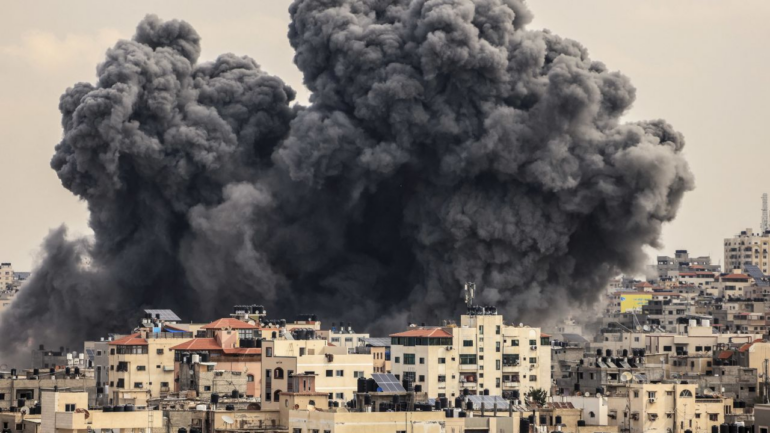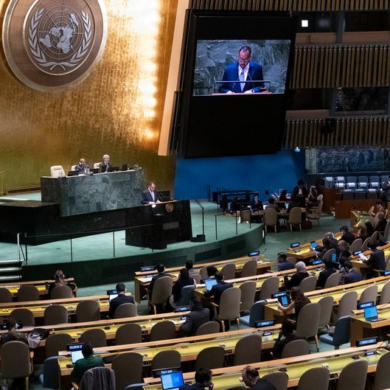The United Nations High Commissioner for Human Rights Volker Turk on Tuesday declared Israel’s total siege of the Gaza Strip as a violation of international law, depriving civilians of essential goods for survival.
Turk emphasized the importance of respecting people’s dignity and lives, urging all parties involved to defuse the escalating crisis.
Israel imposed a total siege on the Gaza Strip, cutting off food, water, and electricity supplies, leading to fears of a humanitarian catastrophe.
Hamas, in response, threatened to execute hostages if Israeli air strikes continued without warning.
Turk stated that international humanitarian law mandated the protection of civilian populations, stressing that imposing sieges endangering civilian lives and denying essential goods constitutes a clear violation of these laws.
He emphasized that any restrictions on the movement of people and goods must be justified by military necessity and should not amount to collective punishment.
The ongoing conflict which entered into 4th day has been escalated with the tragic deaths of Palestinian journalists. Four journalists were killed in Israeli air strikes on Gaza City, bringing the total number of journalists killed in the conflict to eight.
The Committee to Protect Journalists condemned the attacks, urging all sides to recognize journalists as civilians who should not be targeted.
Meanwhile, a UN investigation into alleged human rights violations in the Israeli-Palestinian war revealed clear evidence suggesting war crimes might have been committed.
The Commission of Inquiry emphasized that taking civilians as hostages and using them as human shields were considered war crimes under international law.
The commission expressed grave concern over Israel’s total siege on Gaza, stating that it constituted collective punishment and would undoubtedly cost civilian lives.
The conflict has triggered a massive humanitarian crisis, with nearly 200,000 people fleeing their homes in Gaza since the hostilities began. The United Nations humanitarian office warned of shortages of water and electricity due to the blockade, urging the establishment of a humanitarian corridor to deliver critical medical supplies to those in need.
Israel intensified its air strikes, targeting residential buildings, mosques, hospitals, and even media facilities. The strikes resulted in civilian casualties and destruction of infrastructure. The situation worsened when Israel bombed the headquarters of the private Palestinian Telecommunication Co., potentially disrupting communication services.
International reactions poured in, with several governments expressing concern over the escalating violence which so far claimed over 1,500 lives. The European Union invited top diplomats from Israel and the Palestinian Authority to address an emergency meeting, seeking a resolution to the crisis. The EU clarified that while it reviewed aid funding, emergency humanitarian aid continued to flow to the Palestinians.
In the United States, President Joe Biden announced that at least 11 Americans had been killed, and it was likely that U.S. citizens were among those held hostage. The U.S. sent fresh supplies of air defenses and other security assistance to Israel but warned Iran not to get involved in the conflict, emphasizing the need to prevent the crisis from broadening.
Amidst the escalating violence, leaders from various countries, including Egypt and Turkey, called for an immediate end to the hostilities, urging both Hamas and Israel to protect civilians.
International pressure mounted on Israel to lift the siege on Gaza and respect the rights and lives of civilians.



